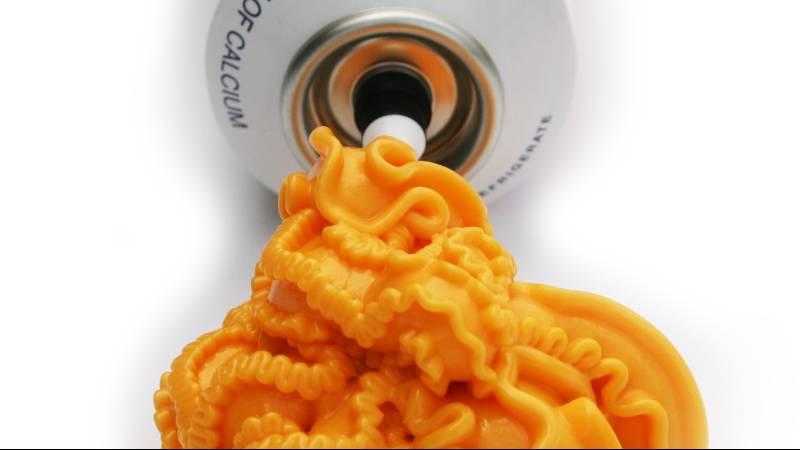Food Stamps Plan Endangers Health With Beef Jerky, Spray Cheese
‘Healthy Staples’ SNAP Plan Would Improve Nutrition with Fruits, Vegetables, Grains, and Beans
WASHINGTON—The Physicians Committee—a nonprofit with 12,000 doctor members—is denouncing the U.S. Department of Agriculture's plan to endanger the health of Supplemental Nutrition Assistance Program (SNAP) participants by making processed meat and spray cheese staples of the program.
The plan, which the National Association of Convenience Stores lobbied for, would allow stores that do not carry healthful foods to profit from SNAP dollars. The doctors are instead calling on the USDA to incorporate the group’s Healthy Staples plan, which calls for subsidizing participating grocers who supply basic healthful foods: grains, vegetables, beans, fruits, and basic multiple vitamins.
A study published earlier this week links ultra-processed foods to increased risk of heart disease, stroke, and premature death. Cheese is the No. 1 source of saturated fat in the American diet, which increases the risk of heart disease. Beef jerky and other processed meats have been classified as “carcinogenic to humans” by the World Health Organization. They also increase the risk of cardiovascular disease.
“Under the USDA plan, convenience stores will profit from selling beef jerky, spray cheese, and other products that take a toll on the health of SNAP participants who are looking for healthful staples,” says Physicians Committee director of nutrition education Susan Levin, MS, RD, CSSD. “A plan that ensures participants get more fruits, vegetables, grains, and legumes would help them better fight the obesity, heart disease, and diabetes that disproportionately affects them.”
According to the USDA, SNAP participants are more likely to be obese than income-eligible nonparticipants. They also have an increased risk of death from heart disease and diabetes, compared to SNAP-eligible nonparticipants.
A recent Tufts University study found that between 1999 and 2014 diet disparities persisted or worsened for SNAP participants compared with income-eligible nonparticipants and higher-income individuals. The study also found that SNAP participants ate fewer fruits and vegetables and processed meat than those not receiving SNAP assistance.
The American Medical Association has asked the USDA to incentivize healthful foods and discourage or eliminate unhealthful foods from SNAP. The Physicians Committee released a poll last year that found 80 percent of respondents agreed that SNAP should focus on fruits, vegetables, beans, and grains instead of products like meat and cheese.
Under the Physicians Committee’s Healthy Staples plan, published in the American Journal of Preventive Medicine, SNAP participants choosing solely from Healthy Staples would likely get about double the fiber, iron, and calcium than those following a typical American diet. A Healthy Staples participant would also consume 65 percent less fat and 85 percent less saturated fat, and the excess of 250 milligrams of cholesterol consumed daily would be reduced to essentially zero.
Healthy Staples is inspired by the USDA’s Women, Infants and Children program, or WIC. In 2009, WIC was revised to help participants get more whole grains, fruits, and vegetables. That change helped to decrease the purchases of foods high in fat and sodium and increase the sales of fruits and vegetables, according to a study in the American Journal of Preventive Medicine. Childhood obesity also decreased among WIC participants.
Founded in 1985, the Physicians Committee for Responsible Medicine is a nonprofit organization that promotes preventive medicine, conducts clinical research, and encourages higher standards for ethics and effectiveness in education and research.








